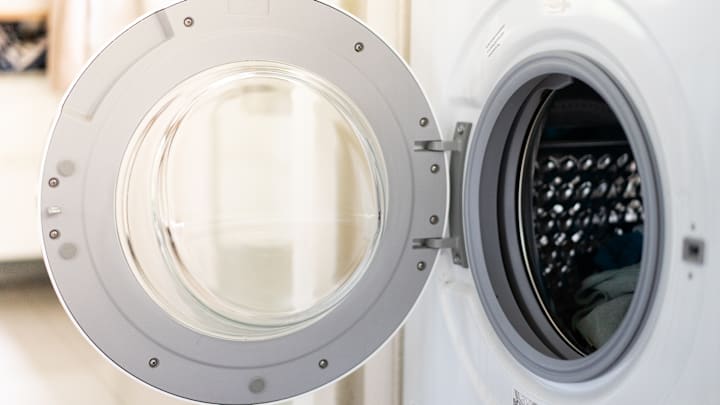Many of us have been conditioned to believe that washing laundry in hot water is the best way to get it clean. However, that’s not always the case. Opting for a cold water cycle is not only easier on your delicates and on your energy bill, but it’s often the best way to remove dirt and stains.
- Cold Water Fights Food Stains
- Cold Water Is Gentle on Your Delicates
- Cold Water Is Cost-Effective
- When Hot Water Is Best
Cold Water Fights Food Stains

Before tossing your soiled clothes in the washing machine, it helps to know what kind of stains you’re dealing with. According to The Spruce, protein-based stains (such as milk or eggs) typically don’t respond well to hot water. In fact, using higher temperatures can “cook” the substance into an item, making stains more difficult to remove.
Additionally, research from Consumer Reports shows that modern detergents typically perform their jobs more effectively in cold water. In many cases, these cleansers contain enzymes that remove dirt and stains better in cold water.
You May Also Like:
- 7 Tips for Deep Cleaning Your Home
- The Simple Way to Clean Your Mattress
- Why You Should Never Let Dirty Dishes Soak in the Sink
Add Mental Floss as a preferred news source!
Cold Water Is Gentle on Your Delicates

Hot water can do a number on your clothing, making them more likely to shrink and fade. This will eventually cause your clothing to wear out. Washing items in hot water also increases the likelihood of dark items bleeding into white pieces. Delicate fabrics, such as lace and silk, are especially susceptible to the damaging effects of warm and hot water.
Cold Water Is Cost-Effective

In case you need another reason to ease off the hot water, it’s in your best interest financially. Up to 90 percent of the energy used by a washing machine goes to heating the water—which means if you’re using hot water for every wash cycle, you’ll definitely notice when it’s time to pay your bills. Cold water is also known to reduce wrinkles, which means you can save on time and energy costs associated with ironing.
When Hot Water Is Best

It’s usually OK to use hot or warm water on oil-based or grease stains; they can take the heat. You may also want to use hot water to sanitize soiled items. For example, bed sheets usually contain a significant amount of built-up sweat and body oils, so it’s best to use hot water for your linens load. Some synthetic fabrics, such as nylon and polyester, can also withstand higher temperatures.
You may want to opt for hot or warm water when the temperature outside drops below 40℉. That’s because when the water in your pipes is too cold, it may not work as effectively with your laundry detergent. When in doubt, just read the item’s label.
Your laundry isn’t the only thing that needs regular cleaning; if you can’t remember the last time you cleaned your washing machine, it’s been too long. Here’s what you need to do to make your washing machine spotless.
